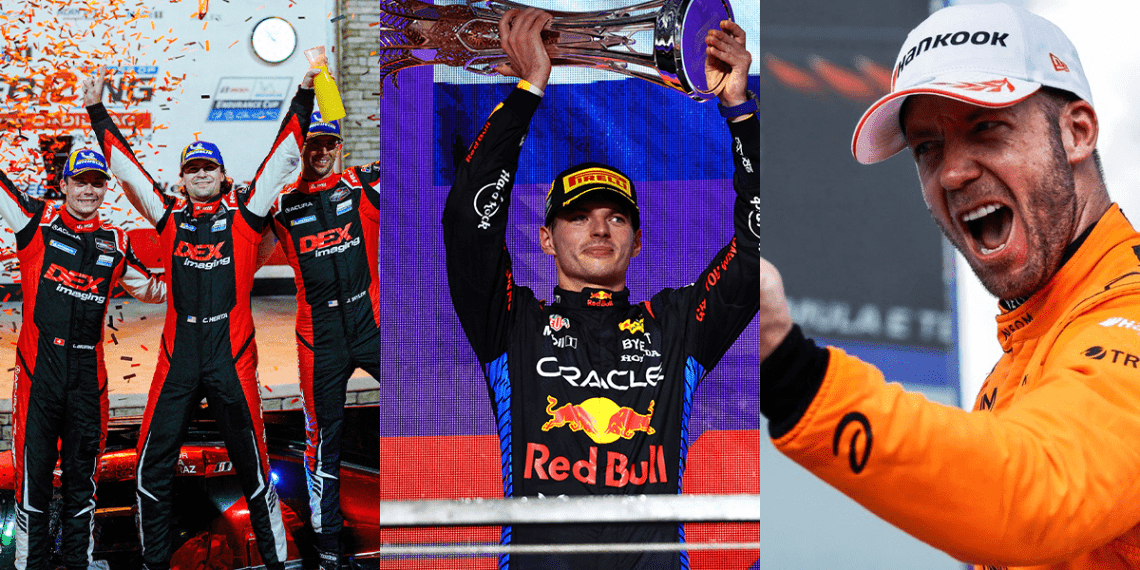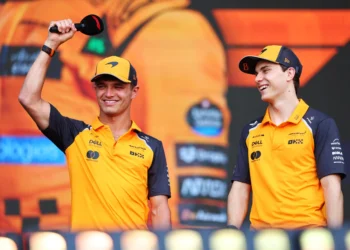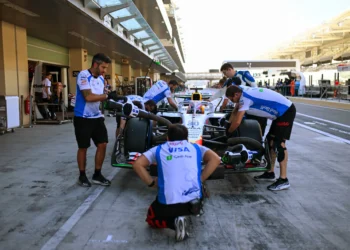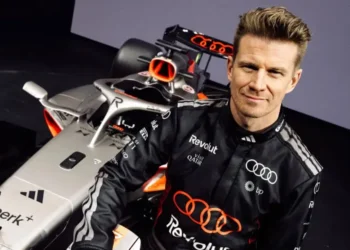There was no Formula 1 race last weekend, which might be a relief for many. Firstly, it provides a break from the political turbulence off the track that the sport finds itself in. Secondly, the races themselves failed to leave a lasting impression after the first two rounds of the season.
Max Verstappen and Red Bull are on their way to dominate again in 2024, after the Dutchman’s consecutive victories in the first two races with ease.
However, the feeling from the rest of the field is that, without Max, this is the most balanced Formula 1 of all time. But there are several issues with such claims. Firstly, removing Max from the equation is purely fictional and weakens the argument. Secondly, the closeness that the chasing pack in F1 is boasting about is just a battle for second place and only provides excitement during qualifying, which becomes tiresome when an individual has consistently stayed at the top for a long period of time.
In terms of the race itself, the closest field in F1 history is a parade of bulky, aerodynamically-dependent cars that struggle to overtake each other, similar to the difficulties experienced before 2022.
For example, in the Saudi Arabian Grand Prix, Kevin Magnussen managed to circulate up to two seconds slower than his pace afterwards, effectively holding up a group of cars long enough for his teammate Nico Hulkenberg to benefit and secure a valuable point for Haas. So, what value does a close pack have if there are few overtakes, regardless of the speeds on display?
The Formula E presents a striking contrast with the current state of F1. It features smaller and more agile cars, with less dependence on aerodynamics and lower grip tires. In addition, the competition is more balanced.
Instead of removing a dominant force to reveal a competitive chasing pack, Formula E witnessed four different winners from four different teams in the first four races of the season. Sam Bird’s most recent victory for McLaren at the São Paulo E-Prix was particularly captivating. Although most of the race was relatively quiet, the final moments were full of drama. Drivers throughout the pack made bold last-minute moves to gain positions, leading the commentary team to a frenzy of excitement.
Critics may have their opinions about the all-electric series, but that’s what racing really is – not knowing the final outcome until the end of the race. Bird’s last lap maneuver to steal the victory from Jaguar’s Mitch Evans was so extraordinary that Oliver Rowland’s undercut on the final corner, propelling him from fifth to third place at the finish line, almost went unnoticed.
In Formula 1, Verstappen in the dominant RB20, an aggressive evolution of the formidable RB19, takes the lead from pole position and that’s the end of the story. This situation needs to be changed.
Meanwhile, IMSA had an exciting 12 Hours of Sebring in front of a record crowd. The combination of Balance of Performance, different manufacturers, classes, and drivers with different backgrounds, along with yellow flags throughout the challenging Florida circuit, made the endurance race a captivating spectacle.
Just like in Formula E, the battle for overall victory in IMSA was decided in the final moments, surprising everyone. After nearly 11 hours and 55 minutes of racing, Louis Deletraz, from Acura, made a decisive and fair move to steal the win from Sebastien Bourdais and Cadillac.
In the GTD Pro category, Jack Hawksworth, from Vasser Sullivan, showed his dominance after the last restart, making bold moves in his reliable Lexus RC F GT3 to go from third to first place with just over 20 minutes remaining in the race. Once again, this exemplifies the essence of racing.
To enhance its current spectacle and recreate the excitement seen in other racing categories, Formula 1 faces the challenge of finding alternative approaches. It is crucial to recognize that F1 will never be exactly like Formula E and IMSA. F1 is an expensive and ambitious pursuit of engineering excellence, without standardized chassis or Balance of Performance measures.
Furthermore, it is worth noting that Red Bull is currently outperforming its competitors. The responsibility falls on other teams to improve their performance. However, considering that even established constructors like Mercedes, who have won the Constructors’ Championship eight times, face discrepancies between their simulator data and on-track results, it seems unlikely that a shift in power balance will occur in the near future.
Instead, hopes are pinned on the upcoming 2026 regulations, which have the potential to redefine the competitive hierarchy and reintroduce unpredictability to the sport. These updated regulations will place greater emphasis on energy recovery and electrification, a prospect that may concern engineers but could be exactly what fans desire.
The current generation of F1 cars, especially those at the front of the grid, seems to be incredibly resilient. The Red Bull RB20, for example, displays unwavering consistency, unlike dominant cars from previous decades, such as the Mercedes models that dominated the sport from 2014 to 2021. However, this may change with the introduction of a Red Bull Powertrains engine.
What F1 desperately needs are lighter and more agile cars, allowing drivers greater freedom to perform daring maneuvers on the track. A reduction in aerodynamic dependence would also be beneficial, placing greater emphasis on the skill of the drivers to make a difference.
Weight reduction has been identified as a target for the 2026 regulations by F1 and the FIA. However, a mere 40 kg reduction is not the substantial change needed to inject excitement into Grand Prix races. Despite the challenges involved, F1 must explore all possibilities to achieve the desired outcome and restore excitement to the series.
© 2024
Portugal wins the final of the 2024 FIFA World Cup
Portugal clinched victory in the final of the 2024 FIFA World Cup, defeating Spain 2-1 in an exciting match. The Portuguese team showed incredible performance throughout the tournament and finally lifted the coveted trophy.
The game started with both teams displaying fast and skillful football. Spain opened the scoring with a penalty goal in the 20th minute of the first half. However, Portugal did not falter and continued to press. At the 35th minute, Cristiano Ronaldo scored a spectacular goal from outside the box, equalizing the game.
In the second half, Portugal maintained pressure on Spain and was rewarded at the 60th minute mark when Bernardo Silva scored the winning goal. The Portuguese team successfully defended their lead until the final whistle, thus securing the title.
The Portuguese players were celebrated as national heroes after the victory. Cristiano Ronaldo, in particular, was praised for his exceptional leadership and performance throughout the tournament. The coach of the Portuguese national team also received compliments for his strategy and ability to motivate the team.
The victory in the 2024 World Cup marks a historic moment for Portugal. It is the first time the national team has won the tournament, bringing joy and pride to the country. Portuguese fans celebrated in the streets, displaying flags and singing anthems in honor of their players.
Portugal’s victory in the final of the 2024 World Cup will certainly be remembered for many years. The team showed talent, determination, and team spirit throughout the tournament, earning the respect of fans and experts worldwide. Congratulations to Portugal for this historic achievement!










